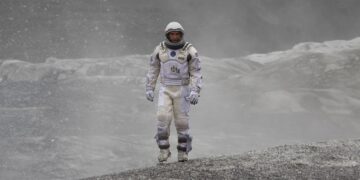Suppose space flight, exploration of interplanetary space, research of astronomy and its impact on our daily life are exciting topics in your opinion. In that case, you cannot miss these film productions. There are only 10 entries on the list, so the selection was rough and tough.
The space movies category is really broad and includes stories with little to do with space. With such a definition, space movies are the ones that show stories based on real events as well as stories that are invented but highly probable. And also connected to man’s quest to explore the cosmos.
Therefore, it is not every film about space that takes place in space. Sometimes it is a very mundane story but with an ending that involves overcoming the barriers that have enabled man to reach his current level of advancement in space exploration and research.
And sometimes, it’s a story that shows what our lives, or those of our descendants, may look like in the face of the challenges we will inevitably face as we begin to explore the nearest celestial bodies and the solar system intensively. Or sometimes, it’s a well-portrayed story based on real-life experiences.
Part of the proposals that made it to the TOP 10 space movies of all time are certainties and cinematography icons that could not be omitted; another part is films that are difficult to find in VoD archives but worth finding and watching. Stay tuned for the best 10 space movies of all time.
This is yet another film in which space is not the location of the action but merely the goal to which the protagonists aspire. Or, in practice, heroines, as Hidden Activities is the story of the forgotten creators of NASA’s success in the 1960s. The movie was nominated for 3 Oscars and did not win any statuettes, but this confirms that the laurels do not always go to the most deserving ones.
This is a biographical drama presenting the lives of three African-American women whose mathematical talent contributed to the success of the USA in the Space Race. Like Apollo 13, the screenplay is based on true events, though this time those less known to a wider audience due to the troubling nature associated with the problem of both the treatment of women and racial segregation that may have negatively impacted NASA’s positive image.
The film is, in a way, paying tribute not only to Katherine Johnson, Dorothy Vaughan, and Mary Jackson but also to others who worked on the Apollo program, whose participation did not live to see their rightful place in history of space exploration in the 20th century.

















































Discussion about this post